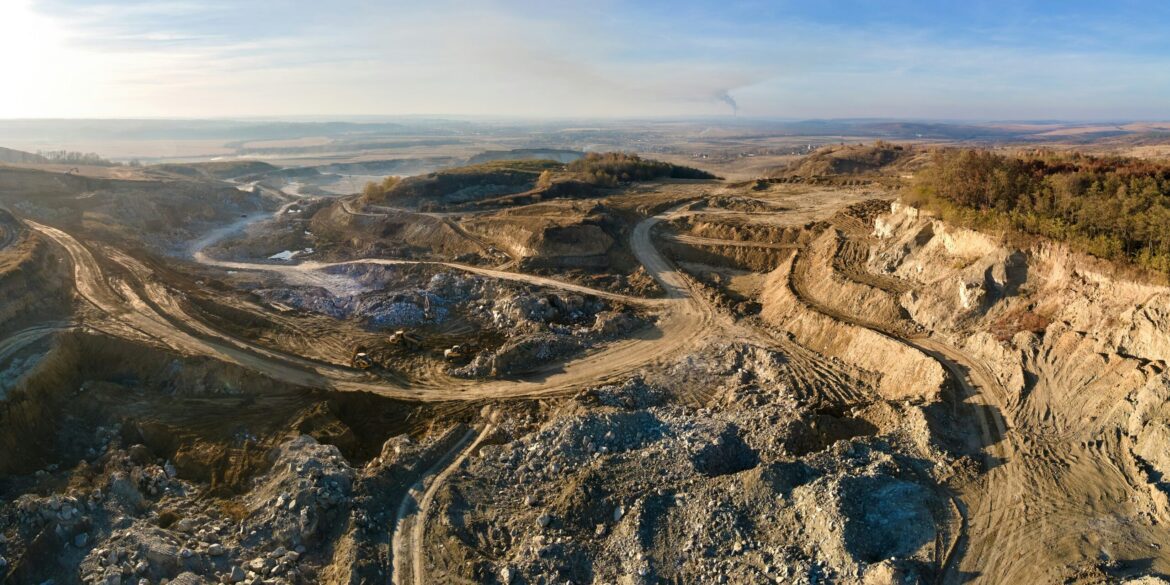WYOMING, USA — On July 12, 2025, the United States marked a pivotal moment in its industrial and energy strategy with the grand opening of the country’s first new rare earth elements (REE) mine in more than seven decades. Located in western Wyoming, the Brook Mine project, developed by American Minerals Group, aims to bolster domestic supply of critical minerals essential to modern technologies ranging from electric vehicles to wind turbines and smartphones.
This milestone comes amid growing concerns over the United States’ dependence on foreign sources for REEs, particularly from China, which currently dominates global production. The Wyoming site is expected to provide a sustainable domestic supply of these vital materials, helping reduce vulnerabilities in the supply chain for clean energy infrastructure and advanced electronics.
With a projected operational lifespan of at least 50 years, the mine is poised to become a cornerstone of U.S. efforts to strengthen domestic manufacturing and technological independence. Company officials estimate that the site will employ approximately 400 full-time workers when it reaches peak capacity. In addition, the project is expected to generate hundreds of ancillary jobs in transportation, processing, equipment maintenance, and engineering, bringing a significant economic boost to the region.
The opening ceremony drew attention from national and state leaders, who emphasized the mine’s role in securing America’s energy and economic future. U.S. Secretary of Energy Chris Wright called the project a “landmark achievement” for domestic resource development. Wyoming Governor Mark Gordon highlighted the mine as an example of responsible resource utilization aligned with national interests and state-level job creation.
What makes the Brook Mine especially noteworthy is its use of unconventional extraction methods. Rather than relying solely on traditional hard-rock mining, the site utilizes a “carbon ore” process that allows for the recovery of REEs directly from coal-based materials. This innovation, according to experts, could reduce environmental impacts and costs typically associated with REE mining.
The U.S. Department of Energy has identified rare earth elements as essential to the country’s transition to clean energy, noting their key roles in electric motors, wind turbine generators, and energy-efficient lighting. The Wyoming mine’s output will directly support these sectors by supplying critical elements such as neodymium, dysprosium, and praseodymium—used in magnets, batteries, and other high-performance components.
To support the project’s future scalability, Wyoming officials awarded a $6.1 million state grant toward the development of a local processing facility. Construction on this facility is expected to begin later this year and will play a crucial role in refining the extracted elements before they enter the manufacturing supply chain. By establishing both mining and processing capabilities domestically, the project enhances the U.S.’s capacity to manage the full REE lifecycle without outsourcing key stages.
Although the only other active REE mine in the country is the Mountain Pass Mine in California, which resumed operations in 2017, the Brook Mine’s launch represents the first new entry into the rare earth sector since the early 1950s. Industry analysts suggest that the site’s reserves could yield more than a million tons of REE oxides over its lifespan, significantly reducing the need for imports and insulating U.S. industries from geopolitical disruptions.
This development comes at a time when global competition for critical minerals is intensifying. Nations are racing to secure reliable sources of REEs to power the technologies of the future. By investing in domestic extraction and processing, the U.S. is signaling a renewed commitment to energy security, economic resilience, and technological leadership.
As the Brook Mine ramps up operations, attention will now turn to the broader implications for the energy and manufacturing sectors. If successful, the Wyoming model could pave the way for additional rare earth projects across the country, setting the stage for a more self-reliant and sustainable industrial base.

